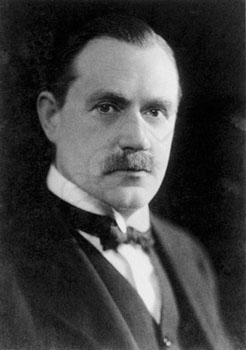- William Eccles
Infobox Scientist
name = William Eccles
box_width =
image_width =150px
caption = Physicist William Eccles
birth_date =August 23 1875
birth_place =Barrow-in-Furness ,England
death_date =April 29 1966
death_place =Oxford
residence =
citizenship =
nationality = British
ethnicity =
field =physics
work_institutions =
alma_mater =
doctoral_advisor =
doctoral_students =
known_for =radio
author_abbrev_bot =
author_abbrev_zoo =
influences =
influenced =
prizes =
religion =
footnotes =William Henry Eccles [J. A. Ratcliffe, "William Henry Eccles, 1875-1966," "Biographical Memoirs of Fellows of the Royal Society", vol. 17, pages 195-214 (November 1971).] (
August 23 1875 -April 29 1966 ) was a Britishphysicist and a pioneer in the development of radio communication.He was born in
Barrow-in-Furness ,England . Following graduation from theRoyal College of Science ,London , in 1898, he became an assistant toGuglielmo Marconi , the Italian radio entrepreneur. In 1901 he received his doctorate from the Royal College of Science. Eccles was an advocate ofOliver Heaviside 's theory that a conducting layer of the upper atmosphere could reflect radio waves around the curvature of the Earth, thus enabling their transmission over long distances. Originally known as theKennelly-Heaviside layer , this region of the Earth's atmosphere became known as theIonosphere . In 1912 Eccles suggested thatsolar radiation was responsible for the observed differences inradio wave propagation during the day and night. [W. H. Eccles, "On the diurnal variations of the electric waves occurring in nature, and on the propagation of electric waves round the bend of the earth," "Proceedings of the Royal Society of London, Series A", vol. 87, no. 593, pages 79-99 (13 August 1912).] He carried out experiments into atmospheric disturbances of radio waves and used wave detectors and amplifiers in his work. Eccles invented the termDiode to describe an evacuated glass tube containing two electrodes; ananode and acathode .Following
World War I Eccles' main interest was in electronic circuit development. In 1918 he worked in collaboration withF. W. Jordan to patent the flip-flop circuit, which became the basis of electronic memory in computers. [William Henry Eccles and Frank Wilfred Jordan, "Improvements in ionic relays" British patent number: GB 148582 (filed: 21 June 1918; published: 5 August 1920). Available on-line at: http://v3.espacenet.com/origdoc?DB=EPODOC&IDX=GB148582&F=0&QPN=GB148582 .] [W. H. Eccles and F. W. Jordan (19 September 1919) "A trigger relay utilizing three-electrode thermionic vacuum tubes," "The Electrician", vol. 83, page 298. Reprinted in: "Radio Review", vol. 1, no. 3 , pages 143-146 (December 1919).] In 1919, Eccles became vice-chairman of theImperial Wireless Committee . He helped in the design of the firstlong wave radio station, and became involved in the early work of the British Broadcasting Company (later theBBC ) following its establishment in 1922.William Eccles was a
Fellow of the Royal Society (FRS). He was President of thePhysical Society from 1928 to 1930, and President of theInstitution of Electrical Engineers (IEE) in 1926.He died in
Oxford .Notes
Wikimedia Foundation. 2010.
